Are you considering the best ways to ship your goods from China to Toronto? The dynamic trade relationship between these two regions is vital for businesses looking to thrive in today’s global market. In this comprehensive guide, we will explore the various shipping methods available, key considerations for a successful import experience, and practical tips to navigate the shipping landscape efficiently. Whether you’re new to international trade or an experienced importer, this article will equip you with essential knowledge for shipping from China to Toronto.
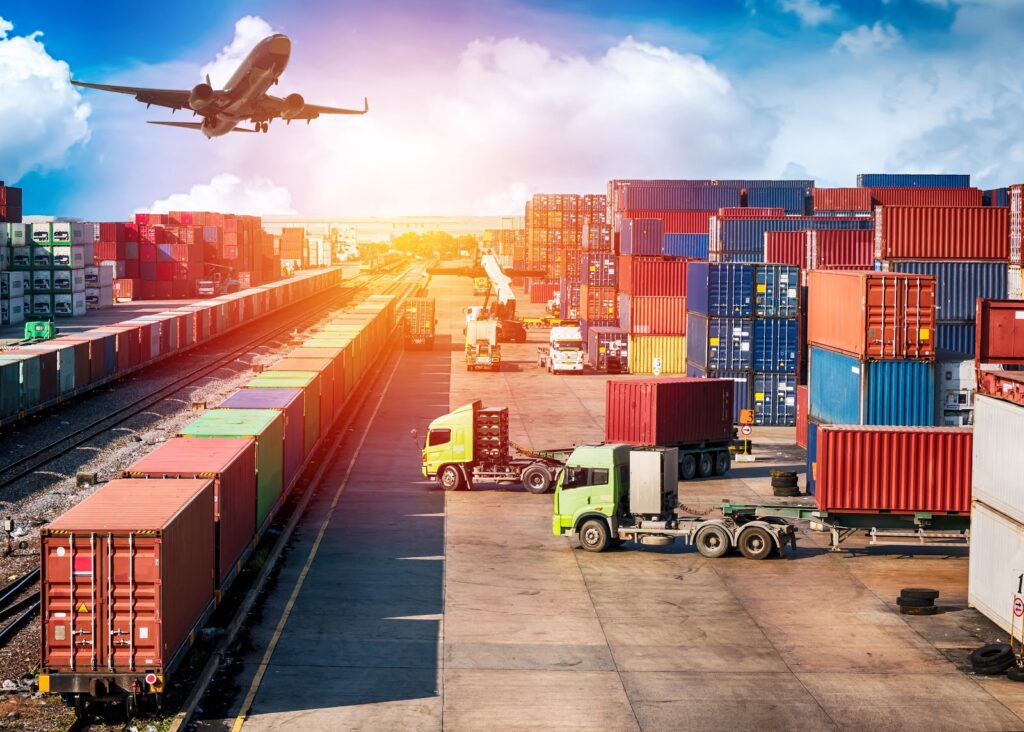
Introduction to Shipping from China to Toronto
The trade relationship between China and Canada has seen remarkable growth over the past few decades. According to Statistics Canada, in 2023, Canada’s imports from China reached approximately CAD 127.4 billion, making China one of Canada’s largest trading partners. The majority of these imports consist of electronics, machinery, textiles, and various consumer goods, highlighting the significant role China plays in meeting the demands of Canadian consumers and businesses.
The dynamic trade between these two nations is driven by a combination of factors, including favorable trade agreements, the demand for Chinese products in the Canadian market, and the efficiency of shipping routes connecting the two countries. Toronto, as Canada’s largest city and a major economic hub, acts as a pivotal point for import activities. The city benefits from advanced infrastructure, a robust transportation network, and a diverse market, making it an attractive destination for goods shipped from China.
Importance of Toronto as an Import Hub
Toronto stands out as a vital import hub not just for its size but also for its strategic location. The city provides access to the Great Lakes St. Lawrence Seaway System, facilitating efficient shipping routes for both ocean freight and air freight. Moreover, Toronto’s well-developed logistics infrastructure includes major highways, railroads, and an international airport, ensuring quick distribution of goods across Canada and beyond.
The Toronto Pearson International Airport is one of the busiest airports in North America, accommodating a substantial volume of air freight from China. Additionally, the Port of Toronto, while smaller than other Canadian ports, still handles a significant amount of ocean freight, making it essential for businesses looking to establish a foothold in the Canadian market.
As a result, importing goods to Toronto opens up numerous opportunities for businesses to thrive, given the city’s vibrant economy, diverse population, and strong demand for imported products. For those interested in more information about shipping logistics, explore our ocean freight and air freight services to streamline your import process.
Available Shipping Methods from China to Toronto
Ocean Freight from China to Toronto
When considering shipping from China to Toronto, ocean freight is one of the most cost-effective and commonly used methods for transporting large volumes of goods. Typically, containers are shipped from major ports in China, such as Shanghai, Ningbo, or Shenzhen, directly to the Port of Toronto or other nearby ports.
Ocean freight transport offers the benefit of accommodating bulky shipments, as shipping containers can hold up to 20 to 40 tons of cargo. This method, however, generally takes longer than air freight, with typical transit times ranging from 20 to 40 days, depending on various factors like shipping routes, weather conditions, and port congestion. For detailed information on costs, you can check out our guide on how much is ocean freight from china.
Dantful International Logistics offers competitive ocean freight rates and provides comprehensive services, including customs clearance and door-to-door shipping, ensuring a seamless shipping experience for your business.
Air Freight from China to Toronto
Air freight is another viable option for shipping goods from China to Toronto, particularly for time-sensitive shipments. This method is significantly faster, with delivery typically occurring within 3 to 7 days from the time of departure. Major airports in China facilitate air cargo operations, and goods can be shipped directly to Toronto Pearson International Airport.
While air freight is more expensive than ocean freight, it offers advantages such as reduced shipping times and enhanced security. This makes it an ideal choice for high-value items or products that require rapid delivery. Companies like Dantful International Logistics provide efficient air freight services, ensuring your shipments arrive promptly and safely.
Comparing Shipping Methods: Ocean vs. Air
| Shipping Method | Cost | Transit Time | Best For |
|---|---|---|---|
| Ocean Freight | Lower (cost-effective for large volumes) | 20 to 40 days | Bulk goods, non-time sensitive items |
| Air Freight | Higher (more expensive) | 3 to 7 days | Time-sensitive items, high-value products |
When choosing between ocean and air freight, businesses should consider their budget, urgency, and the nature of the goods being transported. Dantful International Logistics can assist in selecting the most suitable shipping method based on your specific needs, ensuring a smooth and efficient shipping process from China to Toronto.
READ MORE:
- Shipping From China to the USA
- Shipping From China TO Canada
- Shipping From China TO Mexico
- Shipping From China to Panama
- Shipping From China to Costa Rica
- Shipping From China to Brazil
- Shipping From China TO Colombia
- Shipping From China to Jamaica
- Shipping From China to Venezuela
- Shipping From China to Argentina
Key Considerations When Shipping to Toronto
Customs Regulations and Import Compliance
Understanding customs regulations is crucial when importing goods from China to Toronto. Canadian customs policies are strictly enforced to protect local industries and ensure compliance with international trade laws. Importers must be aware of the Canada Border Services Agency (CBSA) regulations, which dictate what can be brought into the country and the necessary procedures to do so.
Some essential aspects include:
- Prohibited and Restricted Items: Certain goods may be restricted or prohibited. It is vital to check the CBSA website for a complete list of these items.
- Tariff Classification: Each item must be classified under the correct Harmonized System (HS) code, which determines applicable duties and taxes. Misclassification can lead to fines or shipment delays.
- Import Licenses: Depending on the type of product, an import license may be required. This is particularly relevant for controlled goods like food, pharmaceuticals, and certain chemicals.
Import compliance is not just about understanding regulations, but also about keeping up-to-date as policies may change frequently. Thus, working with a knowledgeable freight forwarder like Dantful International Logistics can greatly assist in navigating these complexities.
Essential Documentation for Smooth Shipping
Proper documentation is vital for a seamless shipping experience from China to Toronto. The following documents are typically required:
- Commercial Invoice: This document outlines the transaction details such as the buyer and seller information, a description of the goods, and the total value of the shipment.
- Packing List: This provides detailed information about the contents of the shipment, including dimensions and weight, which is essential for both customs clearance and shipping logistics.
- Bill of Lading (BOL): This serves as a contract between the shipper and carrier. It outlines the terms of shipment and is necessary for the release of goods at the destination.
- Import Declaration: This is submitted to the CBSA to declare the goods being imported and is necessary for determining applicable duties and taxes.
Ensuring that all documents are accurate and complete can help facilitate a smooth customs clearance process and prevent delays.
Duties, Taxes, and Tariffs for Imports
When shipping from China to Toronto, understanding the financial implications of duties, taxes, and tariffs is key. Canada imposes various tariffs on imported goods based on their classification under the HS code system.
- Import Duty: This is a tax levied on imports and can vary significantly depending on the product category. Certain goods may qualify for reduced rates under trade agreements such as the Canada-China Free Trade Agreement.
- Goods and Services Tax (GST): A 5% GST is applied to most imported goods, with additional provincial taxes applicable in certain regions including Ontario.
- Excise Tax: Some products, such as alcohol and tobacco, may incur additional excise taxes.
To simplify the tax and duty assessment process, it is advised to consult with a customs broker or freight forwarder like Dantful International Logistics, who can provide tailored advice based on specific shipments.
Shipping Costs from China to Toronto
Breakdown of Shipping Costs
When planning shipments from China to Toronto, it is essential to understand the components that make up shipping costs. Here’s a general breakdown:
| Cost Component | Description |
|---|---|
| Freight Charges | The cost of transportation by sea or air. |
| Fuel Surcharges | Additional fees based on fluctuating fuel prices. |
| Customs Duties and Taxes | Applicable government fees based on product classification. |
| Insurance | Protects shipments against loss or damage. |
| Handling Fees | Charges for loading and unloading goods. |
| Terminal Fees | Fees associated with port operations in both countries. |
Understanding these components allows importers to accurately estimate total shipping costs.
Factors Affecting Shipping Rates
Several factors can significantly affect shipping rates from China to Toronto. Key considerations include:
- Shipping Method: Air freight is generally faster but more expensive than ocean freight.
- Volume and Weight: Heavier and bulkier shipments typically incur higher costs.
- Seasonality: Demand fluctuations can lead to higher prices during peak shipping seasons.
- Distance: The distance from the port of origin in China to Toronto also plays a role in determining costs.
By understanding these factors, businesses can make informed decisions about their shipping strategy.
Tips for Reducing Shipping Costs
To help reduce shipping costs when importing from China to Toronto, consider the following strategies:
- Consolidate Shipments: Group multiple orders into one shipment to benefit from bulk rates.
- Negotiate Rates: Work with a freight forwarder like Dantful International Logistics to negotiate better shipping rates.
- Opt for Cost-Effective Shipping Methods: Evaluate whether ocean freight could be a more budget-friendly option compared to expedited air freight.
- Plan Ahead: Avoid last-minute shipping, which can lead to higher costs. Planning shipments well in advance can provide more options and lower prices.
Implementing these strategies can help businesses manage and reduce their shipping expenses effectively.
Shipping Times from China to Toronto
When it comes to shipping from China to Toronto, understanding the expected shipping times is crucial for effective planning. The transit time can vary significantly based on the chosen shipping method, the departure port in China, and the arrival procedures in Toronto. Below is a summary of estimated shipping times for different methods:
| Shipping Method | Average Transit Time | Notes |
|---|---|---|
| Ocean Freight | 20-40 days | Includes loading, sailing, and unloading time. Typically more economical for large shipments. |
| Air Freight | 5-10 days | Faster but considerably more expensive. Ideal for smaller, time-sensitive shipments. |
These times may fluctuate due to various factors such as port congestion, customs clearance times, and seasonal demand spikes. Therefore, it’s advisable to consult with a professional freight forwarder, like Dantful International Logistics, to get the most accurate estimates for your specific shipment.
Best Practices for Smooth Shipping Experience
Selecting a Reliable Freight Forwarder
Choosing a dependable freight forwarder is essential to ensure a seamless shipping process. When selecting a freight forwarder for your shipments from China to Toronto, consider the following:
- Experience and Expertise: Look for a provider with a strong track record in international shipping, particularly between China and Canada.
- Services Offered: Ensure they offer comprehensive services, including Ocean Freight, Air Freight, Customs Clearance, and Door to Door options.
- Customer Reviews and Reputation: Research customer reviews and testimonials to gauge their reliability and customer service.
- Insurance Options: Choose a freight forwarder that provides shipping insurance for added peace of mind.
At Dantful International Logistics, we pride ourselves on being a highly professional, cost-effective, and high-quality one-stop logistics service provider for global traders, ensuring your shipments are handled with utmost care and efficiency.
Effective Packaging Strategies for International Shipping
Proper packaging is vital for protecting your goods during transit. Here are some effective strategies for packaging your shipments:
- Use Durable Materials: Reinforced boxes and sturdy packing materials can minimize damage during transport.
- Label Clearly: Ensure all packages have clear labeling, including handling instructions, destination addresses, and contact information.
- Optimize Space: Use appropriate packaging sizes to minimize empty space within boxes, reducing the risk of damage.
- Consider Weather Conditions: If shipping sensitive items, consider waterproof packaging or additional padding to protect against moisture.
Importance of Shipment Tracking and Management
Keeping track of your shipments is essential for managing logistics effectively. Here’s why shipment tracking is important:
- Real-Time Updates: Shipment tracking allows you to receive real-time updates on the status and location of your cargo, reducing anxiety and improving communication.
- Proactive Issue Resolution: If delays occur, tracking enables you to identify the issue and act quickly, whether that means contacting your freight forwarder or adjusting your inventory plans.
- Enhanced Planning: Knowing the estimated arrival time helps in coordinating with warehouses, distribution centers, or retail locations for seamless operations.
At Dantful International Logistics, we offer advanced shipment tracking services that provide you with peace of mind and control over your shipments from China to Toronto. Our focus on customer satisfaction means you can trust us to manage your logistics needs efficiently.

Young Chiu is a seasoned logistics expert with over 15 years of experience in international freight forwarding and supply chain management. As CEO of Dantful International Logistics, Young is dedicated to providing valuable insights and practical advice to businesses navigating the complexities of global shipping.





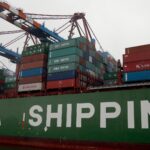


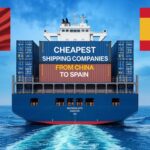

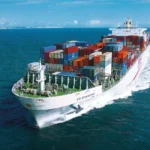
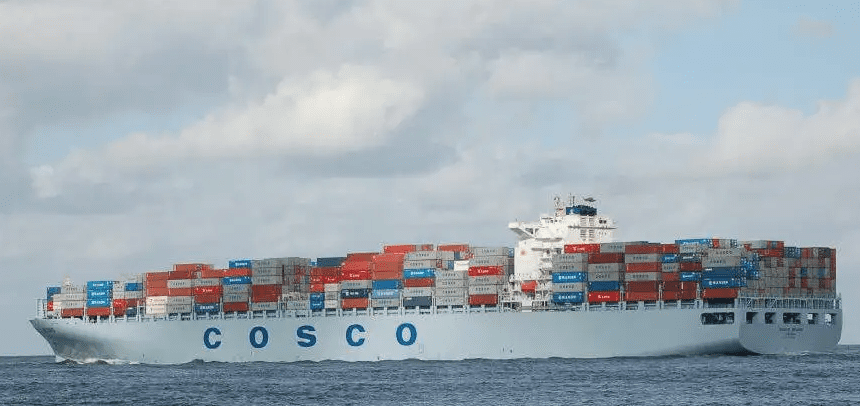
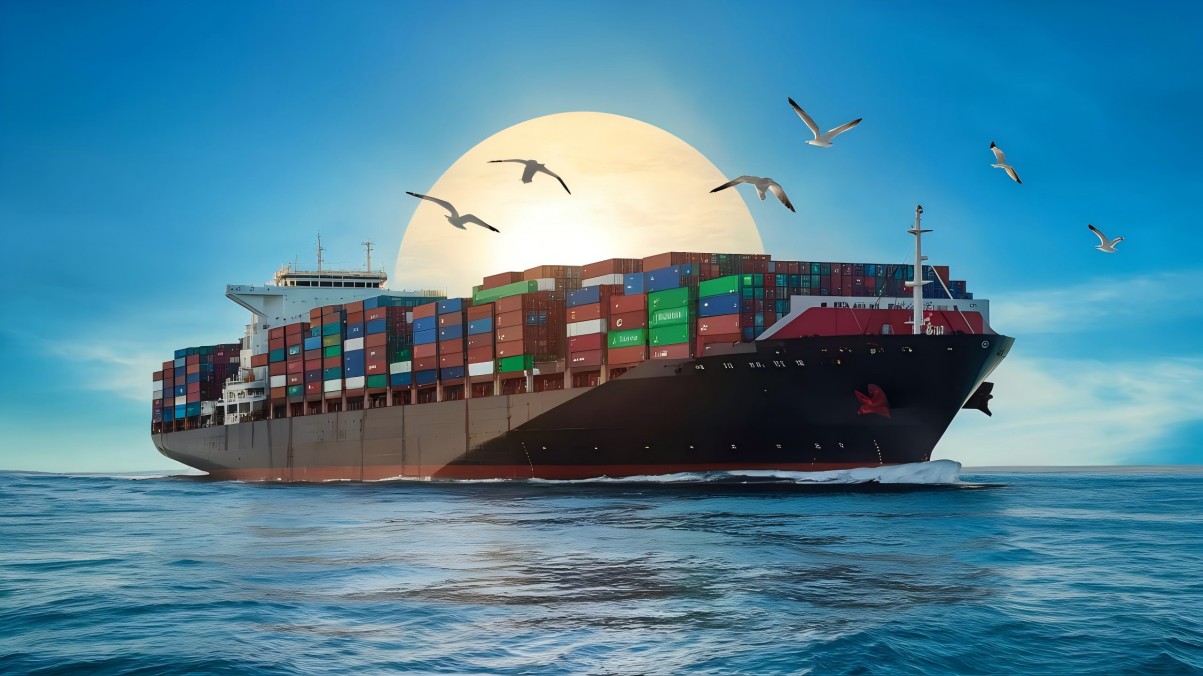
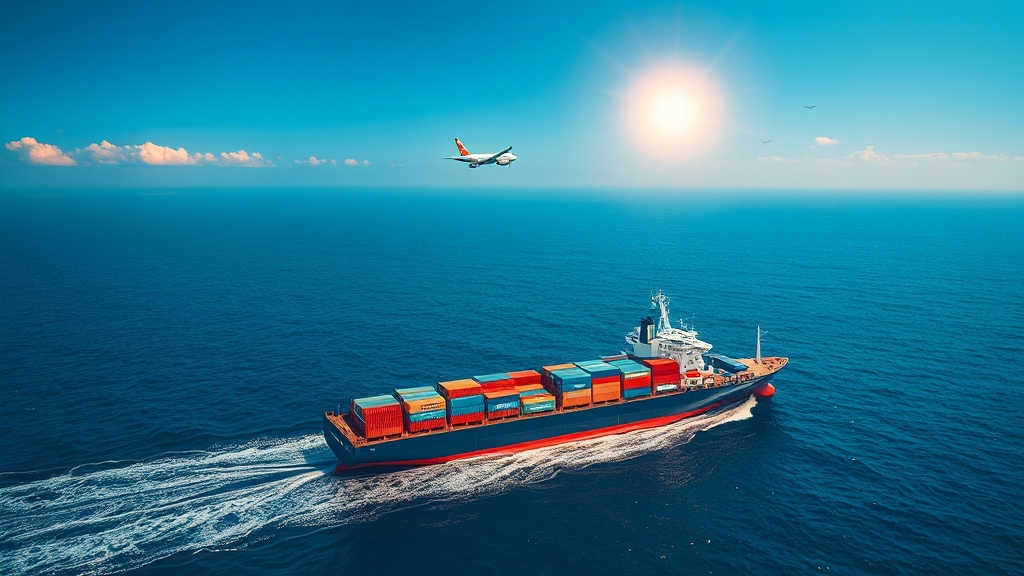
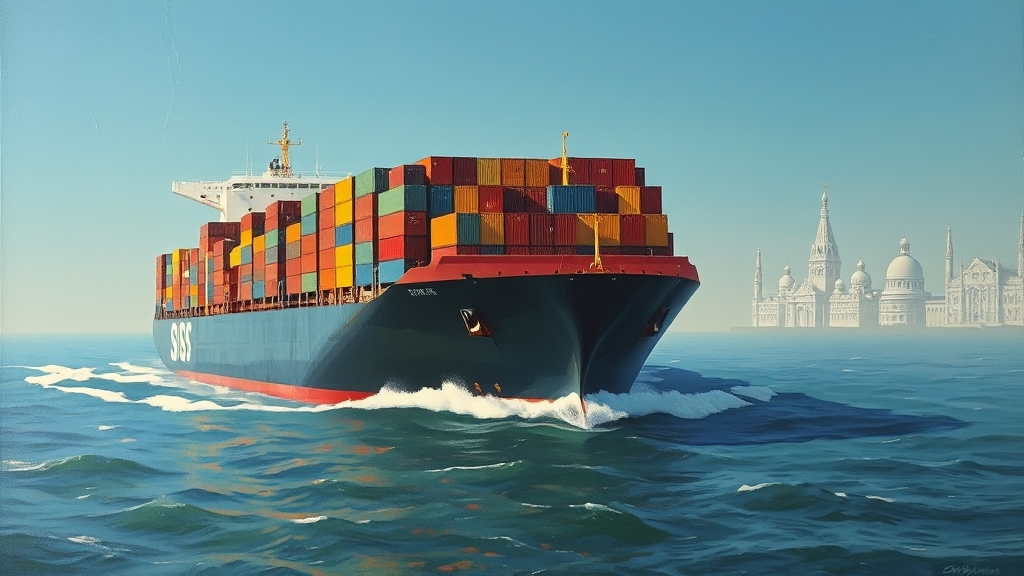
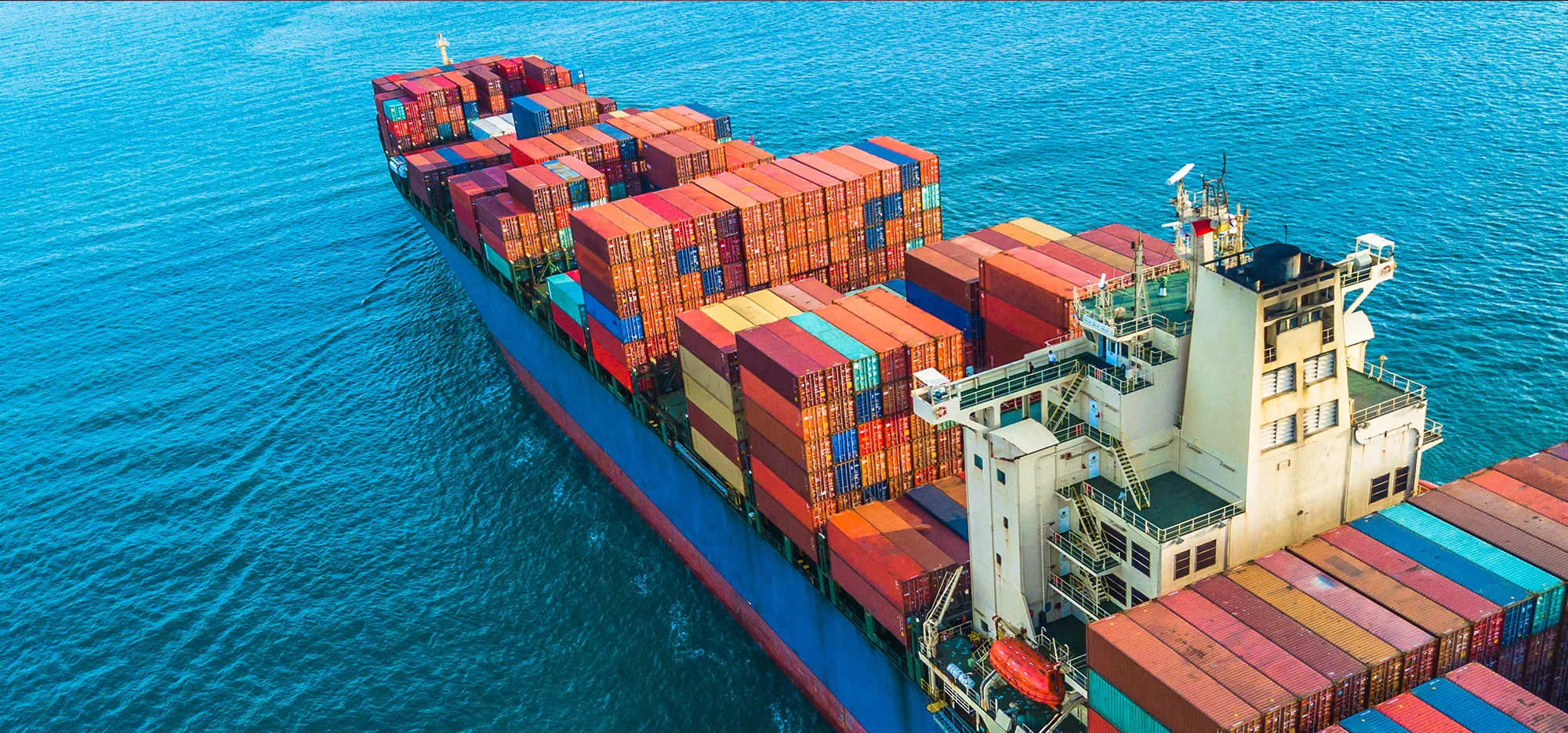





 Afrikaans
Afrikaans Shqip
Shqip አማርኛ
አማርኛ العربية
العربية Հայերեն
Հայերեն Azərbaycan dili
Azərbaycan dili Euskara
Euskara Беларуская мова
Беларуская мова বাংলা
বাংলা Bosanski
Bosanski Български
Български Català
Català Cebuano
Cebuano Chichewa
Chichewa 简体中文
简体中文 繁體中文
繁體中文 Corsu
Corsu Hrvatski
Hrvatski Čeština
Čeština Dansk
Dansk Nederlands
Nederlands English
English Esperanto
Esperanto Eesti
Eesti Filipino
Filipino Suomi
Suomi Français
Français Galego
Galego ქართული
ქართული Deutsch
Deutsch Ελληνικά
Ελληνικά Kreyol ayisyen
Kreyol ayisyen Harshen Hausa
Harshen Hausa Ōlelo Hawaiʻi
Ōlelo Hawaiʻi עִבְרִית
עִבְרִית हिन्दी
हिन्दी Hmong
Hmong Magyar
Magyar Íslenska
Íslenska Igbo
Igbo Bahasa Indonesia
Bahasa Indonesia Gaeilge
Gaeilge Italiano
Italiano 日本語
日本語 Basa Jawa
Basa Jawa ಕನ್ನಡ
ಕನ್ನಡ Қазақ тілі
Қазақ тілі ភាសាខ្មែរ
ភាសាខ្មែរ 한국어
한국어 كوردی
كوردی Кыргызча
Кыргызча ພາສາລາວ
ພາສາລາວ Latin
Latin Latviešu valoda
Latviešu valoda Lietuvių kalba
Lietuvių kalba Lëtzebuergesch
Lëtzebuergesch Македонски јазик
Македонски јазик Malagasy
Malagasy Bahasa Melayu
Bahasa Melayu മലയാളം
മലയാളം Maltese
Maltese Te Reo Māori
Te Reo Māori मराठी
मराठी Монгол
Монгол ဗမာစာ
ဗမာစာ नेपाली
नेपाली Norsk bokmål
Norsk bokmål پښتو
پښتو فارسی
فارسی Polski
Polski Português
Português ਪੰਜਾਬੀ
ਪੰਜਾਬੀ Română
Română Русский
Русский Samoan
Samoan Gàidhlig
Gàidhlig Српски језик
Српски језик Sesotho
Sesotho Shona
Shona سنڌي
سنڌي සිංහල
සිංහල Slovenčina
Slovenčina Slovenščina
Slovenščina Afsoomaali
Afsoomaali Español
Español Basa Sunda
Basa Sunda Kiswahili
Kiswahili Svenska
Svenska Тоҷикӣ
Тоҷикӣ தமிழ்
தமிழ் తెలుగు
తెలుగు ไทย
ไทย Türkçe
Türkçe Українська
Українська اردو
اردو O‘zbekcha
O‘zbekcha Tiếng Việt
Tiếng Việt Cymraeg
Cymraeg יידיש
יידיש Yorùbá
Yorùbá Zulu
Zulu